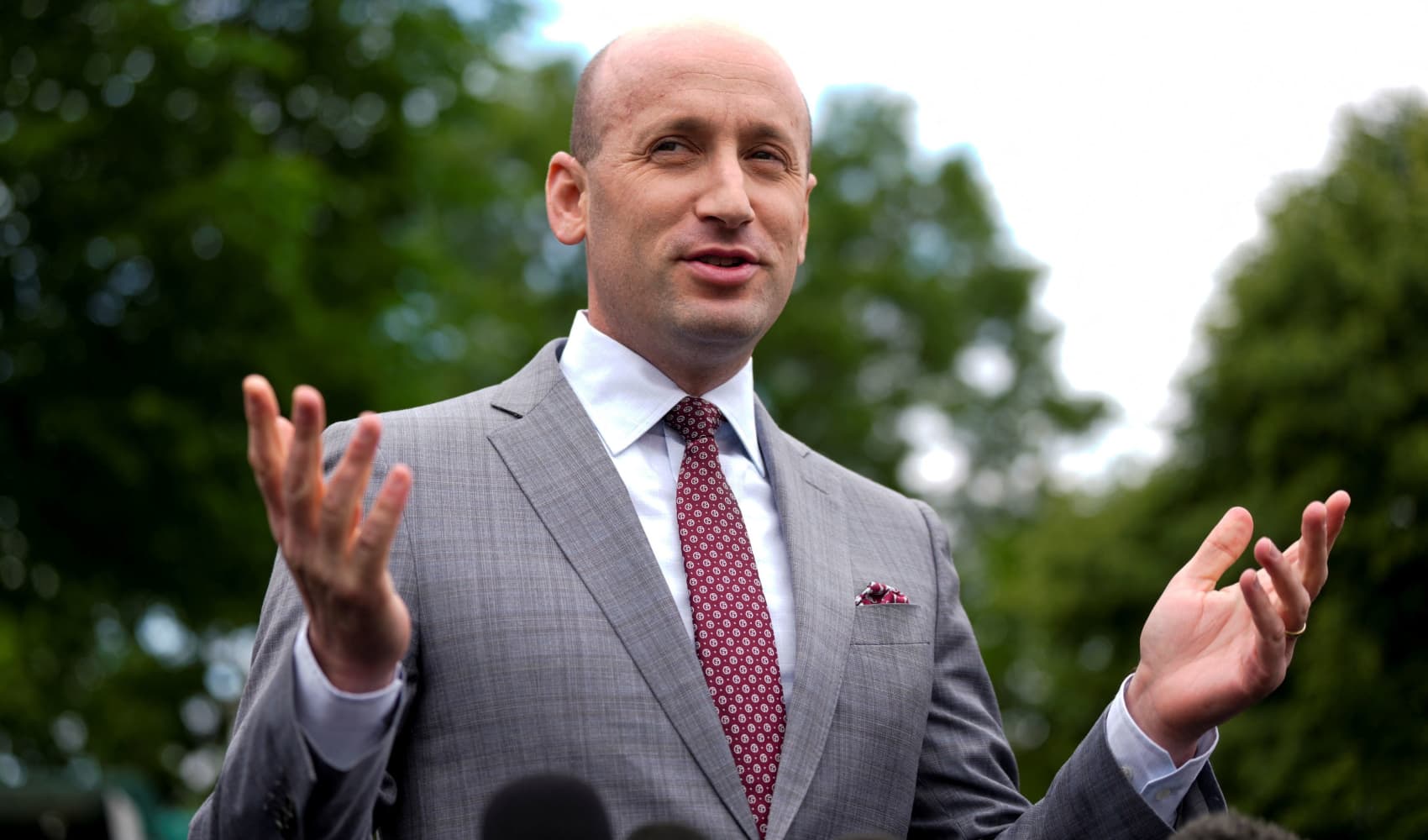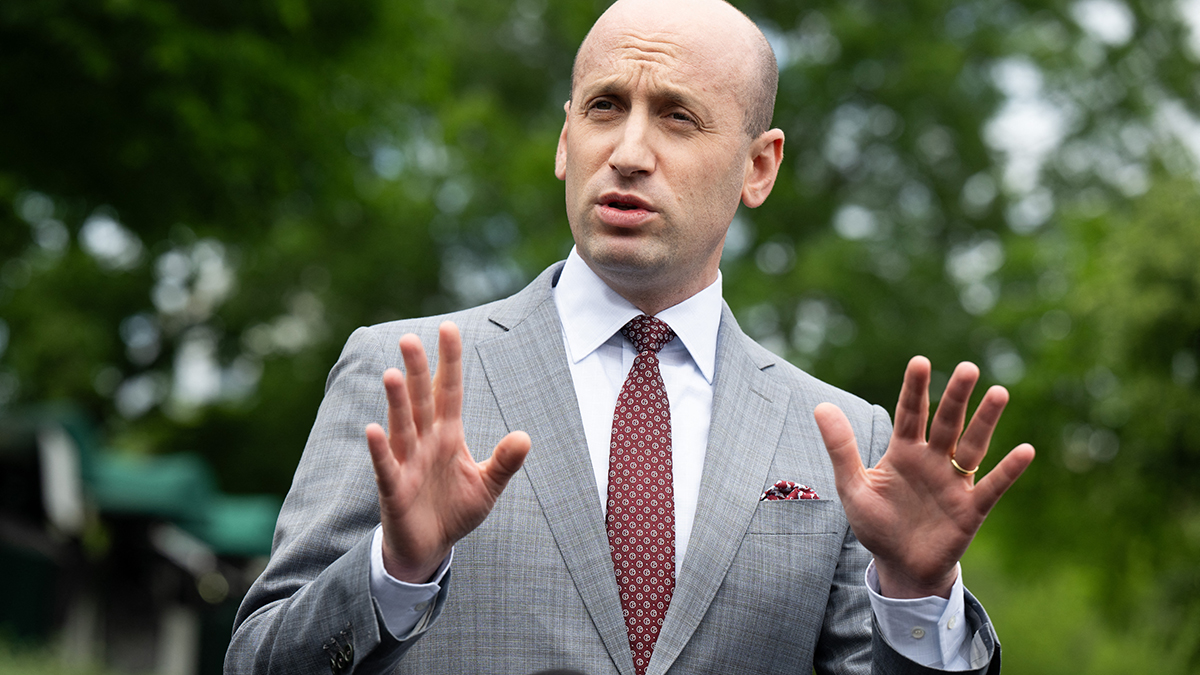Trump Habeas Corpus: Did He Suspend Migrant Rights?
Habeas Corpus Under Fire: Was Trump Considering Suspending Rights for Migrants?
Introduction: A Storm Brewing Over Fundamental Rights?
Imagine a world where the government can detain you without explaining why. Scary, right? Well, that's what the writ of habeas corpus is designed to prevent – ensuring that you can challenge your detention. But what happens when that fundamental right comes under scrutiny? That's exactly what happened when Stephen Miller, a senior advisor during the Trump administration, suggested they were "actively looking at" suspending it for migrants. Did this mean a seismic shift in how the U.S. handles immigration and due process? Let's dive into the details and explore the implications.
What Exactly is Habeas Corpus? The Cornerstone of Liberty
So, what is this "habeas corpus" everyone is talking about? In simple terms, it's a legal recourse, a writ that compels the government to explain why someone is being detained. Think of it as a legal "show me the evidence!" It's a safeguard against arbitrary imprisonment and a cornerstone of our legal system. It ensures fairness and transparency, preventing the government from locking people up without justification.
The Historical Significance
Habeas corpus dates back centuries, deeply rooted in English common law, and is enshrined in the U.S. Constitution. It's not some newfangled legal idea; it's a fundamental principle designed to protect individual liberty from governmental overreach. Its inclusion in the Constitution underscores its importance to the Founding Fathers, who saw it as crucial for preventing tyranny.
Stephen Miller's Revelation: A Glimpse into the Possibility
The statement from Stephen Miller that the Trump administration was "actively looking at" suspending habeas corpus sent shockwaves through legal and political circles. This wasn't just a casual musing; it suggested a serious consideration of a drastic measure. Miller made the comments when questioned by a reporter about whether President Trump would suspend the writ to address illegal immigration.
President Trump and Immigration: A History of Strong Stances
The context surrounding Miller's statement is crucial. The Trump administration was known for its tough stance on immigration, implementing policies aimed at curbing illegal immigration and increasing border security. From building a wall to family separations, the administration's approach was often controversial. So, Miller's statement, while shocking, wasn't entirely out of character with the administration's overall agenda.
The Legal Precedent: When Has Habeas Corpus Been Suspended Before?
Suspending habeas corpus is a big deal. It's not something you do lightly. In fact, it's only happened a handful of times in U.S. history, primarily during times of war or rebellion. Can you imagine the circumstances that would warrant such a drastic step?
Notable Suspensions in History
Habeas corpus has only been suspended four times:
- During the Civil War by President Abraham Lincoln.
- Once during Reconstruction.
- It was never fully suspended during World War I or World War II.
In most of these cases, Congress authorized the suspension. This is a crucial point because the Constitution grants Congress the power to suspend habeas corpus "when in Cases of Rebellion or Invasion the public Safety may require it." Suspending it unilaterally by the executive branch raises serious constitutional questions.
The Constitutionality Question: Executive vs. Legislative Powers
Who has the power to suspend habeas corpus? That's where things get tricky. The Constitution is somewhat ambiguous on the issue, leading to debates over whether the President can act unilaterally or whether Congressional approval is required. Most constitutional scholars agree that only Congress can suspend habeas corpus.
The Separation of Powers Doctrine
The principle of separation of powers is a cornerstone of American governance. It divides governmental authority among the legislative, executive, and judicial branches. Allowing the executive branch to unilaterally suspend habeas corpus could upset this balance and concentrate too much power in the hands of the President.
Impact on Migrants: A Slippery Slope?
Suspending habeas corpus for migrants could have a chilling effect on their rights. It would make it much harder for them to challenge their detention, potentially leading to prolonged and unjust imprisonment. Where do you draw the line? Once you start suspending rights for one group, could it lead to similar measures for others?
Denial of Due Process
Due process is a fundamental principle of American law, guaranteeing fairness in legal proceedings. Suspending habeas corpus would essentially strip migrants of this protection, making them vulnerable to arbitrary government action. It raises concerns about whether the government could detain individuals indefinitely without providing a reason or allowing them to challenge their detention in court.
The Rumeysa Öztürk Case: A Tangible Example
Interestingly, Miller's statement came just hours after a federal judge ordered the release of Rumeysa Öztürk, a Tufts University student, from immigration custody. She had successfully challenged her detention using a habeas writ. This case highlights the importance of habeas corpus in protecting individual rights, even in the context of immigration.
The Power of Habeas Corpus in Action
Öztürk's case demonstrates that habeas corpus is not just an abstract legal concept; it's a real tool that individuals can use to fight unlawful detention. Her successful challenge underscores the potential consequences of suspending this right, particularly for vulnerable populations like immigrants and asylum seekers.
Public Reaction: Outcry and Concern
The public reaction to Miller's statement was swift and largely negative. Civil rights groups, legal scholars, and politicians from both sides of the aisle expressed concerns about the potential erosion of fundamental rights. Many argued that such a move would be unconstitutional and undermine the principles of American justice.
Civil Liberties Under Threat?
The prospect of suspending habeas corpus sparked fears that civil liberties were under threat. Opponents argued that such a measure would set a dangerous precedent, potentially leading to further restrictions on individual rights and freedoms. It raised questions about the balance between national security and the protection of fundamental liberties.
Political Ramifications: A Divided Nation
The debate over suspending habeas corpus further polarized an already divided nation. Supporters of the idea argued that it was necessary to address the immigration crisis and protect national security. Opponents countered that it was a violation of fundamental rights and an abuse of power.
The Role of Congress
Ultimately, the decision of whether to suspend habeas corpus rests with Congress. However, the political climate at the time made it unlikely that Congress would support such a controversial measure. The issue became a flashpoint in the ongoing battle over immigration policy and the limits of executive power.
The Broader Implications: A Threat to the Rule of Law?
The discussion around suspending habeas corpus raised fundamental questions about the rule of law in the United States. Does the government have the right to suspend fundamental rights in the name of national security? What are the limits of executive power? These are complex questions with far-reaching implications.
Setting a Dangerous Precedent
Many legal experts argued that suspending habeas corpus would set a dangerous precedent, potentially leading to further erosion of civil liberties. If the government can suspend rights in one context, what's to stop them from doing it in others? It raised concerns about a gradual shift towards authoritarianism and a weakening of the rule of law.
Where Are We Now? The Current Status
Ultimately, the Trump administration did not suspend habeas corpus for migrants. While the idea was "actively looked at," it never came to fruition. However, the fact that it was even considered highlights the ongoing tension between national security concerns and the protection of individual rights.
The Legacy of the Debate
The debate over suspending habeas corpus left a lasting legacy, raising awareness about the importance of fundamental rights and the need to safeguard them against government overreach. It also served as a reminder of the fragility of civil liberties and the constant vigilance required to protect them.
Conclusion: A Near Miss and a Valuable Lesson
The Trump administration's consideration of suspending habeas corpus for migrants was a stark reminder of the potential for government overreach and the importance of protecting fundamental rights. While the idea was ultimately not implemented, the debate surrounding it served as a valuable lesson about the fragility of civil liberties and the need for constant vigilance. The fact that this possibility was even considered serves as a warning that we must always be prepared to defend the principles of due process and the rule of law. We learned that fundamental rights, even ones as seemingly entrenched as habeas corpus, can come under threat, requiring us to be informed and engaged citizens.
Frequently Asked Questions
- What is the writ of habeas corpus in simple terms?
It's a legal action that allows a person who is being detained to challenge the legality of their imprisonment in court. The government must then justify the detention.
- Under what circumstances can habeas corpus be suspended in the United States?
The Constitution allows for the suspension of habeas corpus "when in Cases of Rebellion or Invasion the public Safety may require it." Typically, this power is exercised by Congress.
- Did the Trump administration actually suspend habeas corpus for migrants?
No, the Trump administration considered it, but ultimately did not suspend habeas corpus for migrants.
- Why was there so much controversy surrounding the possibility of suspending habeas corpus?
Suspending habeas corpus is seen as a drastic measure that could violate fundamental rights and due process. Critics feared it would set a dangerous precedent and lead to arbitrary detentions.
- What is the significance of the Rumeysa Öztürk case in relation to the habeas corpus discussion?
Öztürk's case demonstrated the practical importance of habeas corpus, as she successfully challenged her detention using the writ. It highlighted the potential negative consequences of suspending this right.

